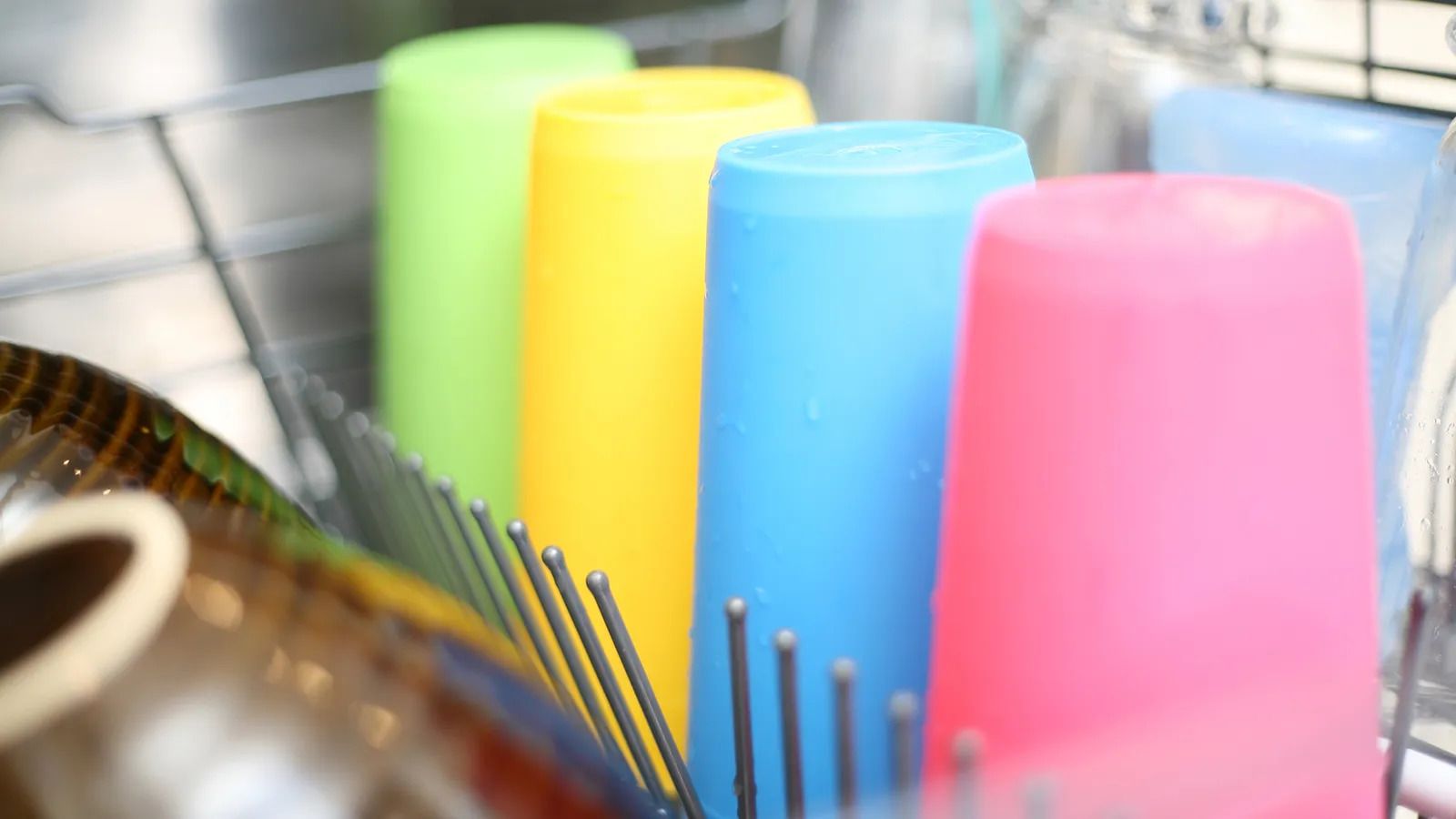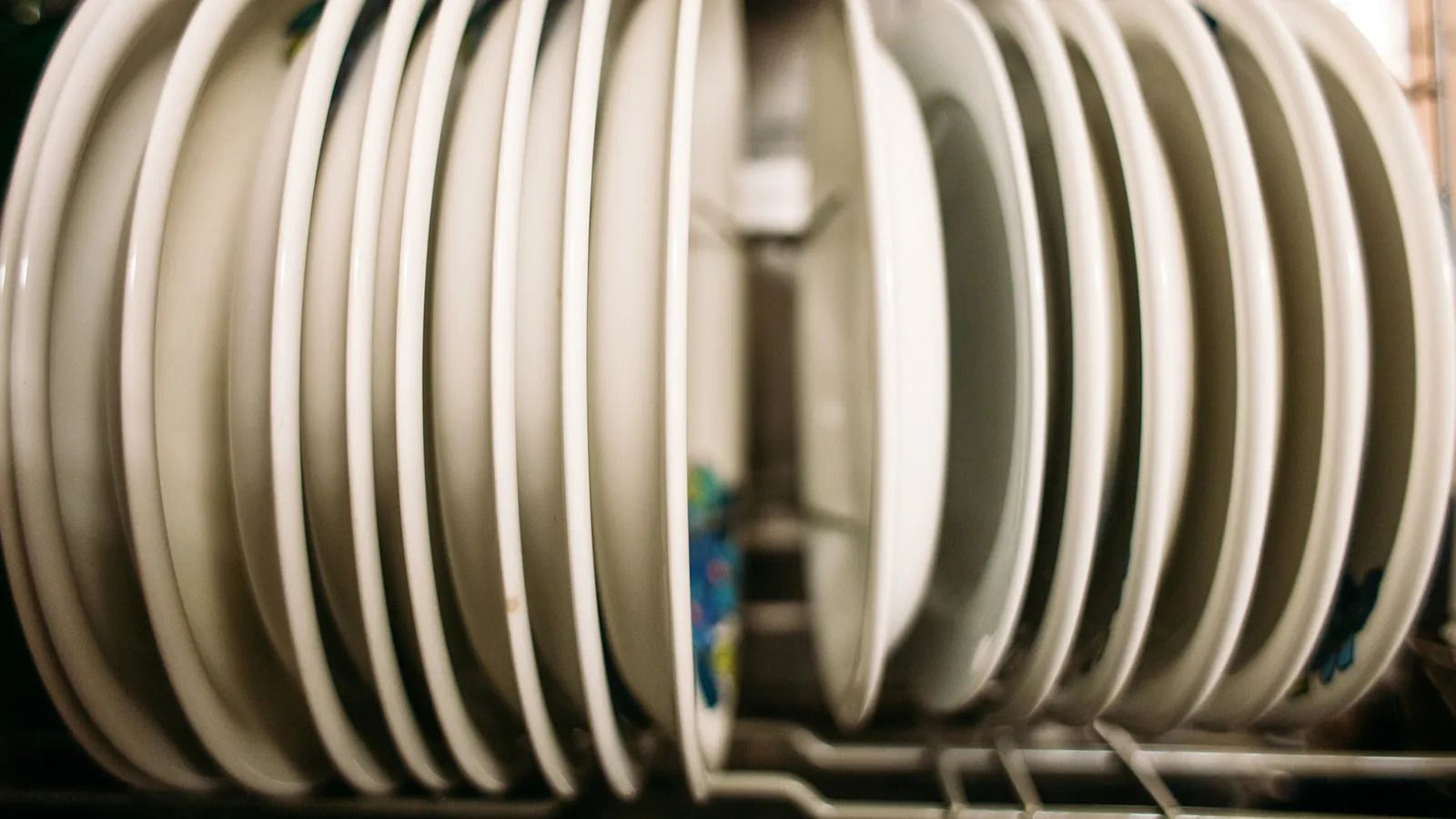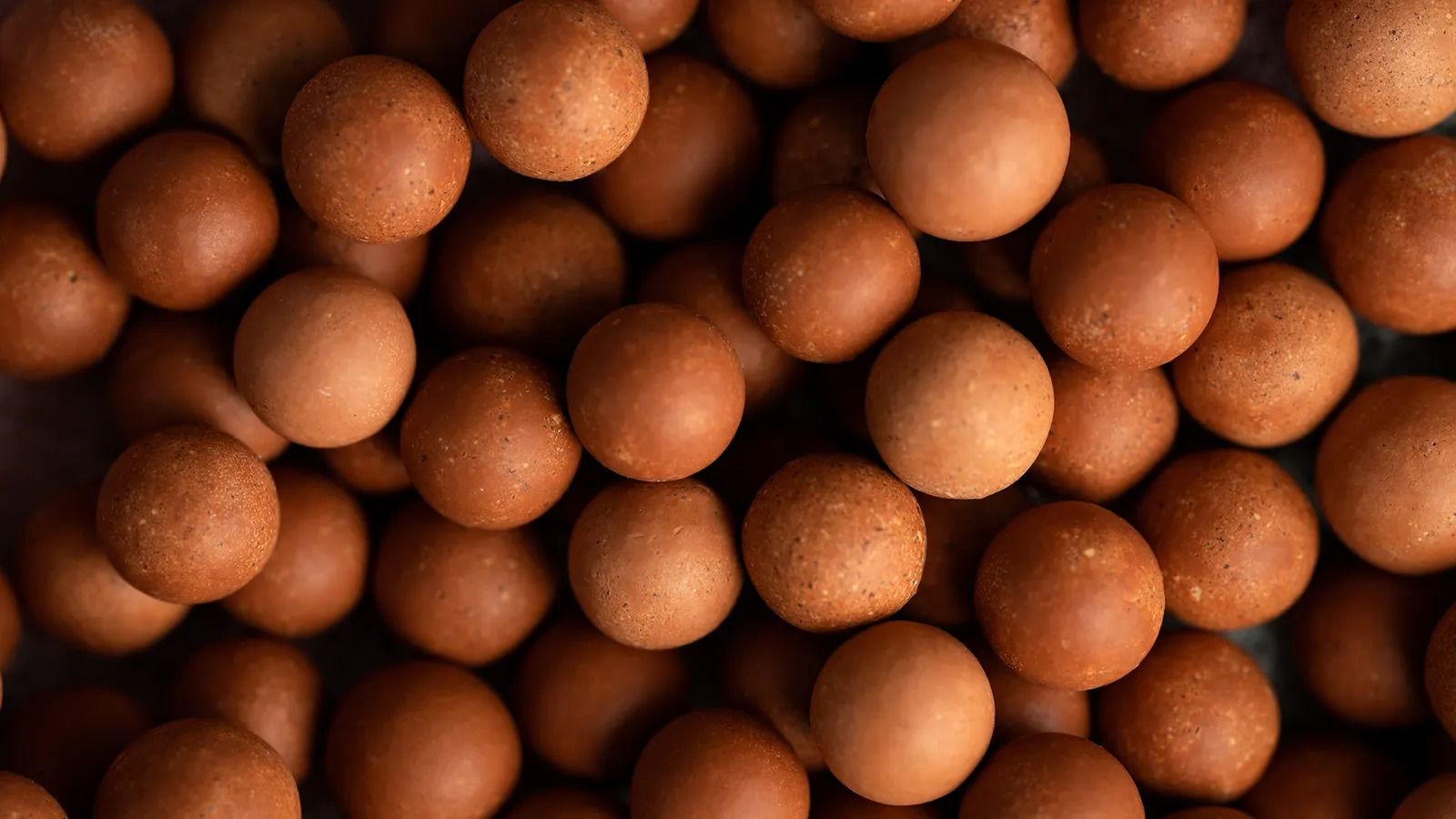
Why plastic doesn't dry in the dishwasher
It is not your imagination. And your dishwasher is not about to pack up.
Modern dishwashers are pretty effective at drying what's inside them after the end of the cycle, except when it comes to one thing: plastic.
Though hand-powered dishwashers have been around since the middle of the 19th Century, the dishwasher's true renaissance came after World War Two, first in commercial kitchens and then the home, alongside the growth of standardised kitchen cupboards and counters. Come the 1970s, they became much more affordable, and much more common.
But so did something else: plastic utensils and food storage containers.
Ever since, emptying a dishwasher has meant dealing with dripping plastic containers, no matter how hot the temperature of the dishwasher. It is an issue which had confounded dishwasher builders for decades. And good old-fashioned thermodynamics is at least partly to blame.
Because most plastic cookware isn't as dense as crockery or metal utensils, it loses heat much quicker.
"Plastic plates and cutlery are significantly lighter than ceramic or stainless steel items and the specific heat capacity is round about the same, so there is less stored heat in the plastic," says Roger Kemp, a fellow of the Royal Academy of Engineering and emeritus professor of engineering at the University of Lancaster. The stored heat remaining in the metal or porcelain keeps them at a slightly higher temperature than the air, aiding evaporation.
"With plastic, there is not enough stored heat to keep it a significantly higher temperature than the general temperature of the dishwasher, so the water on it doesn’t evaporate. There are similar problems with washing thin aluminium food trays because they are very light and, consequently, are poor at storing heat.”
There's another physical force at work here as well – "surface energy". Water placed on a plastic surface will form a bead, whereas it will form a thin layer on glass. The lower surface energy of glass means the water will be more attracted to it. As it spreads it becomes thinner, and more likely to lose some of its mass to evaporation.
"
 Oil-based plastic repels water more than ceramic or metal, making water droplets bead and slower to evaporate
Oil-based plastic repels water more than ceramic or metal, making water droplets bead and slower to evaporate
Another factor is the fact that plastics are based on oil and we know that oil and water don't mix," says Anna Ploszajski, a freelance materials scientist. "When water comes into contact with plastic it doesn't want to spread out, it wants to bead. The surface area of a bead is very small. Glass, ceramics and metals are very hydrophilic on the other hand, so water spreads out more.
"They're not only hotter but the water also has more opportunity to dry out because it's spread much thinner," she says.
Older plastic containers – the faithfuls we take our lunch to work in – may make the issues worse, says Ploszajski. "The plastic gets more and more scratched, and that creates more surface area for the water to stick to."
When new dishwasher models are tested, the typical test load doesn't actually include any plastic objects
As water won't always play ball and dry evenly from every surface, dishwasher designers have had to come up with other methods to hasten drying, says Jacqueline Mariani, a home economist and consultant who has worked with dishwasher manufacturers. "Some brands have introduced a fan drying system to circulate the warm air around the cabinet during the 'drying cycle' to hasten drying. Less expensive models will have a static drying system (no fan, and just relying on the convection currents within the cabin) which is not so effective.
"Others have introduced a door that will automatically pop ajar by a few millimetres which lets in cooler air to hasten circulation and drying." Mariani adds that whatever the method, plastic items usually still need a wipe with a cloth to remove excess water.
The issue may have come about partly through oversight; when new dishwasher models are tested, the typical test load doesn't actually include any plastic objects, despite their widespread kitchen use, according to GE Appliances director of engineering Adam Hoffman.
 Ceramic plates store heat for longer, meaning that water on their surface is more likely to evaporate
Ceramic plates store heat for longer, meaning that water on their surface is more likely to evaporate
Dishwasher detergents have evolved, and now contain surfactants which aid drying. The surfactants lower the surface tension of the water, meaning that it is less likely to cling to objects in the dishwasher. In 2019, chemical company BASF even launched a new "rinse aid" cleaner specifically designed to help plastic dishes and cutlery dry faster.
In their quest for faster-drying plastics, dishwasher engineers have turned to more than just hot air and surfactants to solve the problem. Zeolites, the porous minerals used in everything from cat litter to nuclear waste processing, are also useful when it comes to sucking excess moisture from the inside of dishwashers. Some high-end models started using chambers of zeolites towards the end of the 2000s, and the technology has caught on.
Zeolites have a remarkable ability to absorb water. Their porous nature means they have a large surface area – zeolite can hold more than 40% of its own weight in water. Something else happens when it adsorbs water, too – it releases heat.
You might have to give plastic containers an extra dry with a towel once when you unload the dishwasher, or leave them to air dry on a drying rack – Natalie Hitchens
Zeolite granules are kept in a chamber on the dishwasher's door. When the drying cycle starts, moist air is circulated inside the chamber and the zeolites adsorb the water and release heat. The heat is sent back into the dishwasher's interior to help cut drying time. During the next wash cycle, the zeolites are heated up by the dishwasher's heating elements, expelling the water and readying them for the next drying cycle.
While the process of drying the zeolites does require energy, the heating element doesn't need to be used for the entirety of the washing and drying cycle, meaning that overall, zeolite-equipped dishwashers use something like 20% less energy than a normal dishwasher, its designers have claimed.
But what if your particular dishwasher doesn't have zeolites? What else can you do?
 Zeolite minerals are used in some dishwashers to adsorb water, with the heat they release in the process used to hasten drying
Zeolite minerals are used in some dishwashers to adsorb water, with the heat they release in the process used to hasten drying
"You might have to give plastic containers an extra dry with a towel once when you unload the dishwasher, or leave them to air dry on a drying rack," says Natalie Hitchens, the home and services editor of consumer guide Which? "When loading the dishwasher be sure to place plastic items on the top rack to prevent them from warping in the heat."
But you might not even have to take them out of the dishwasher itself. "If the dishwasher doesn't have a fan system for drying, or the door doesn't automatically pop ajar during the drying cycle, you could release the door slightly to release some of the moist air," says Mariani. "But beware of the condensation that this may cause in the kitchen, especially if the underside of the worktop is unprotected."
And true to 21st-Century form, another method may have presented itself thanks to social media. Earlier this year, an Australian mother went viral on TikTok after showing her tip to get plastic to dry while still inside the dishwasher: she opened the door as soon as the cycle had finished and placed a cotton teatowel over the door, with half it inside the dishwasher when the door is closed.
"I could see why that would work," says Ploszajski, "because you're wicking the water away but the inside of the dishwasher is still hot."
That said, Ploszaijski's own tip for getting rid of the water still clinging on to post-dishwasher plastic? "I leave it on the drying rack after I take it out."










